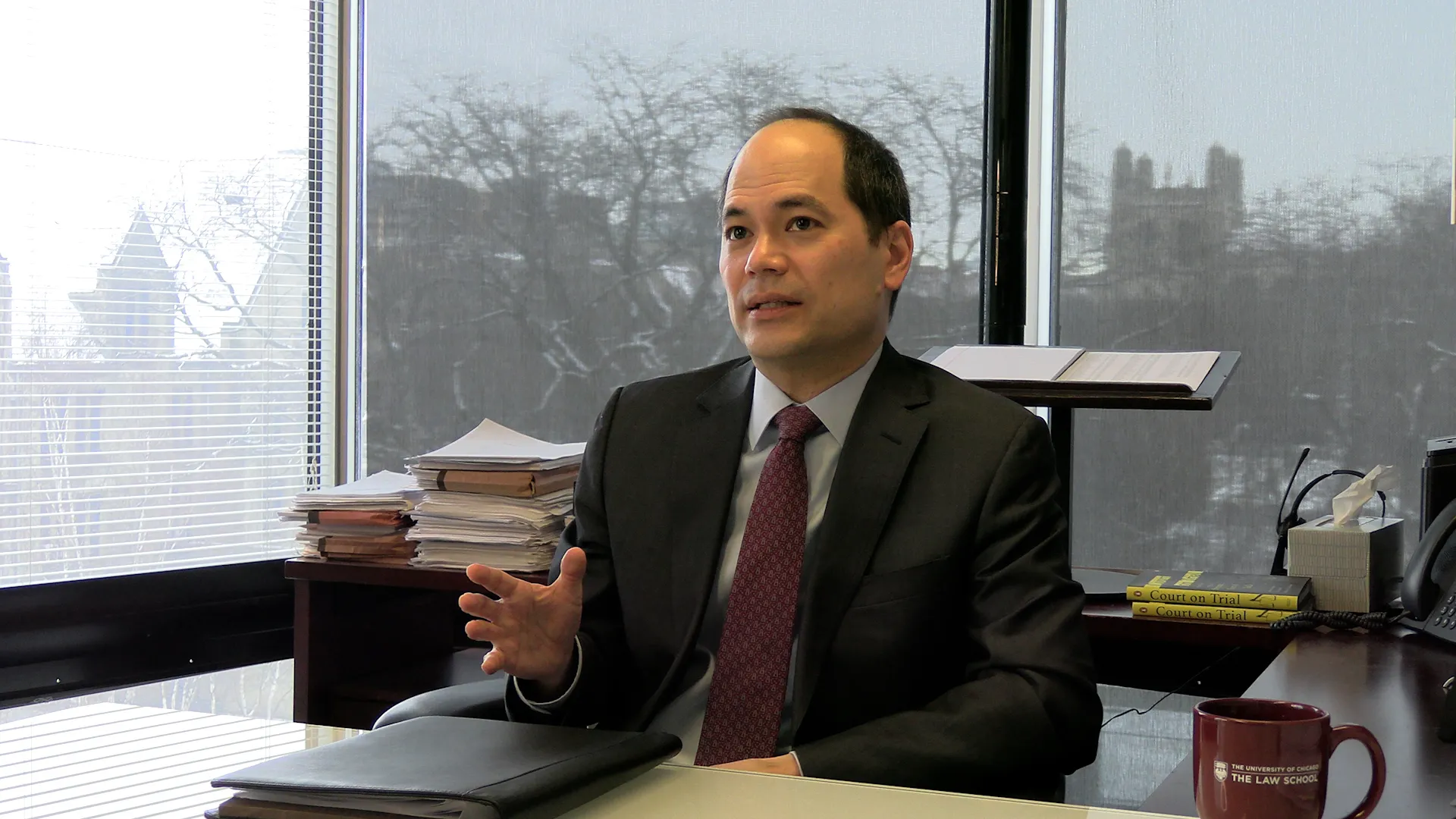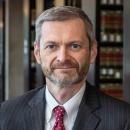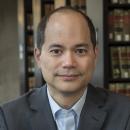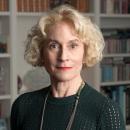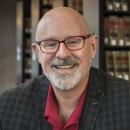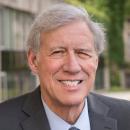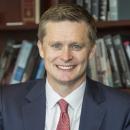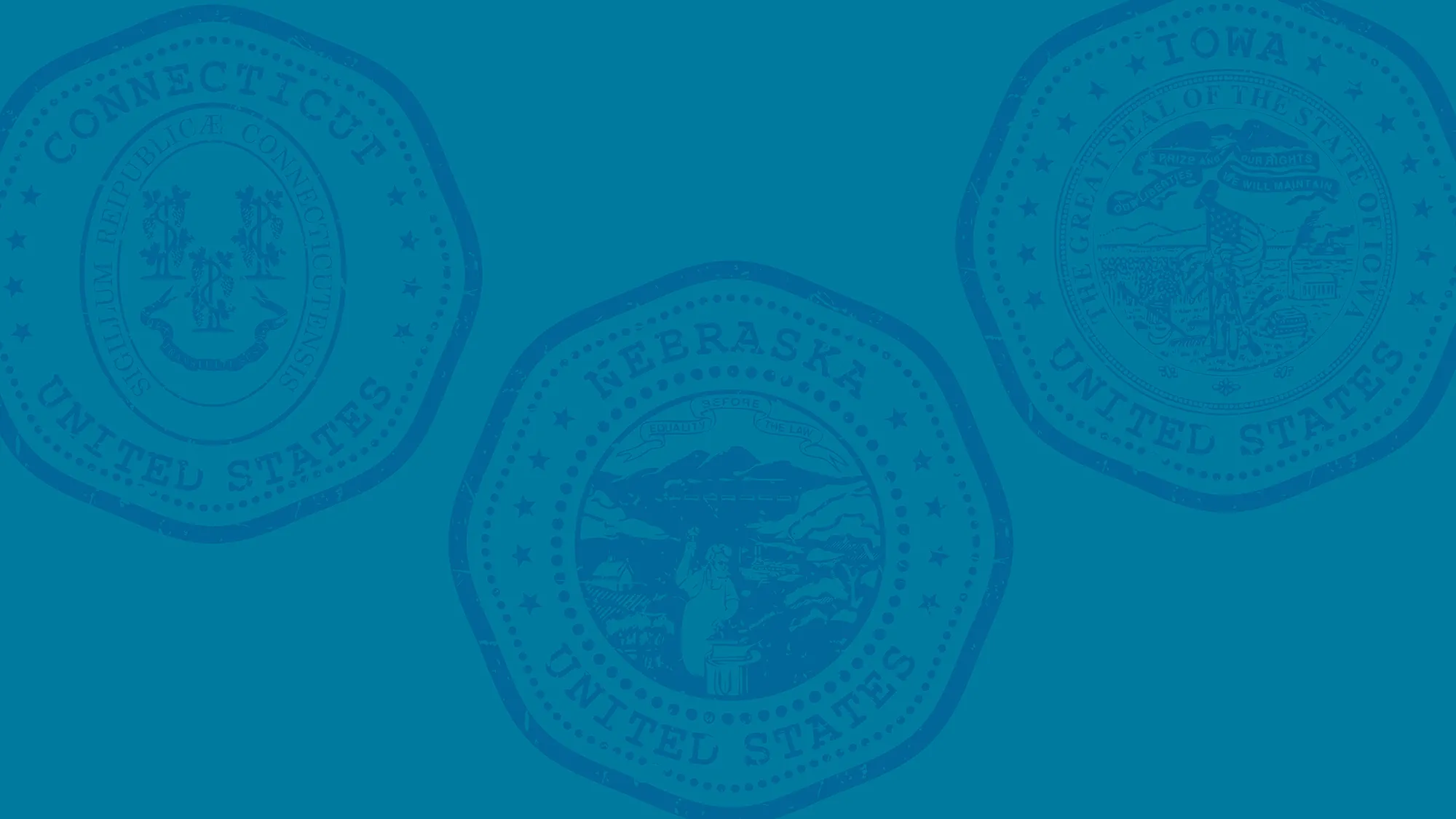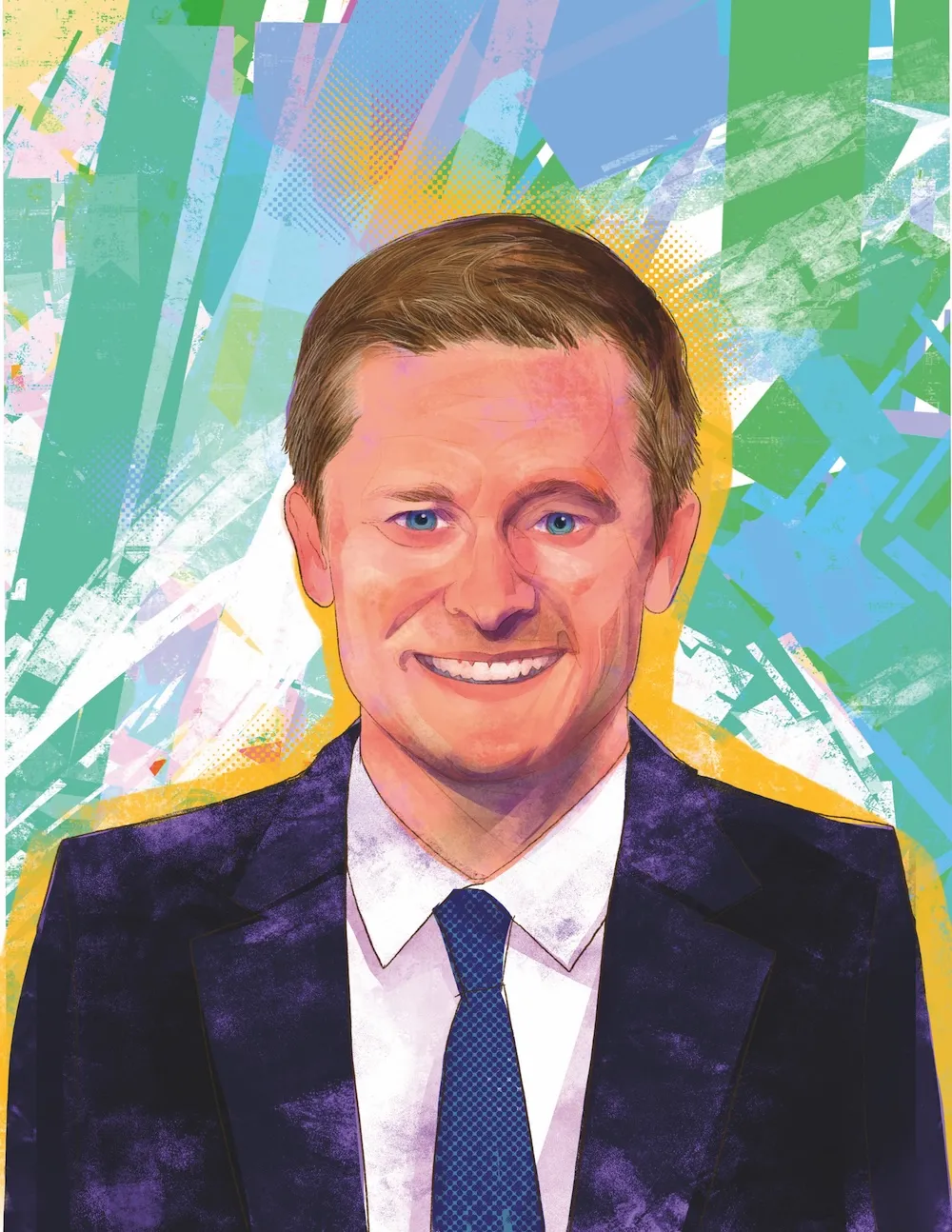Building on Our Strengths
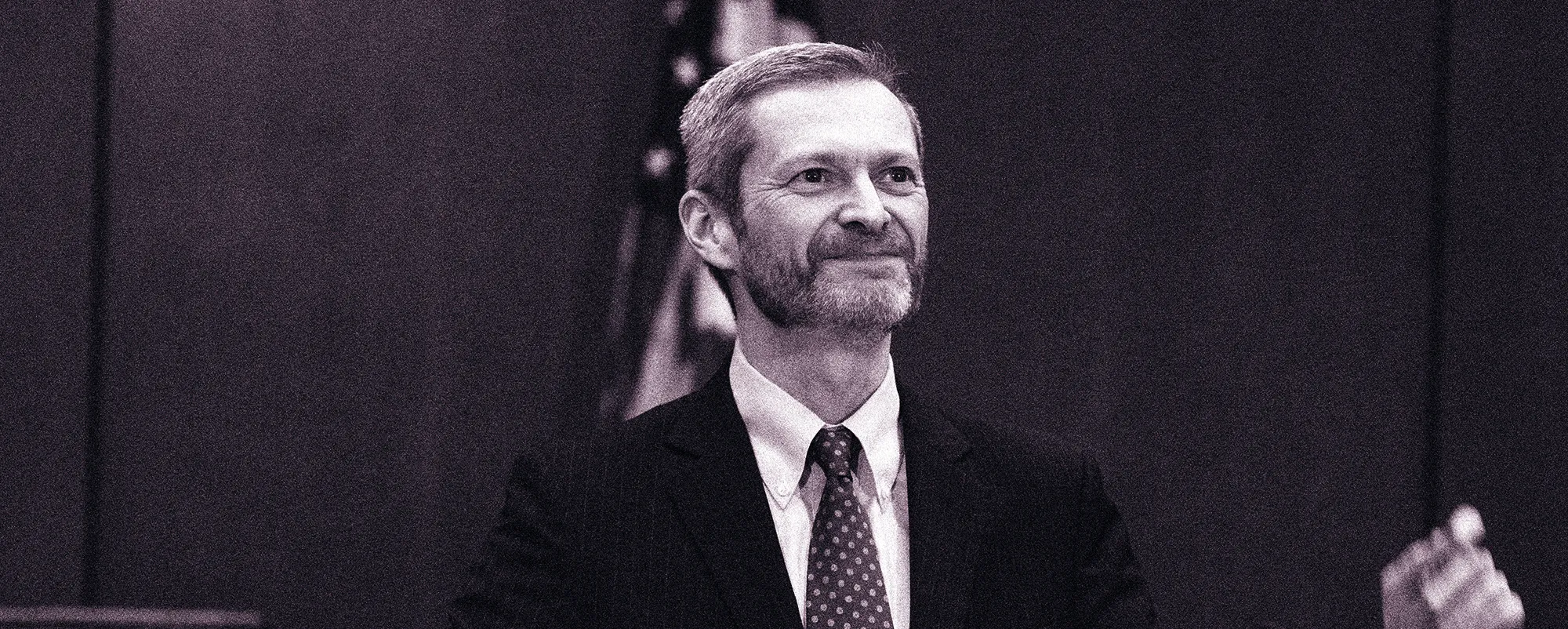
After a decade of service as the Law School’s fourteenth dean, Thomas J. Miles will hand over leadership reins on June 30 and return to full-time teaching and scholarship on the Law School faculty.
For many, it’s hard to remember the Law School without Miles as dean. If you attended any major Law School event you would find him there at the lectern, warmly welcoming visitors and eloquently conveying the goals and values of the intellectual community he calls home. You would find him at “coffee mess,” thoughtfully connecting with students, and in faculty workshops, sitting among the Law School’s scholars to engage in the latest exchange of ideas.
Looking back on the last ten years, it’s easy to see that Miles had one clear and consistent mission throughout his deanship: preserve, nurture, and elevate what the Law School already does best. “This is a moment to build on our strengths,” he had said in a 2015 interview, when he first became dean. And build on them he did.
Over the next decade, Miles expanded the faculty to record levels of scholarly excellence, increased financial aid support and recruitment of the most highly talented cohorts of students, expanded experiential learning opportunities with bold new programs, maintained a consistently excellent career placement for graduates, especially in clerkships, which nearly doubled, and deepened the Law School’s culture and pipeline of philanthropy.
Miles steered the Law School through numerous crises and changes in the higher education landscape, including the COVID-19 pandemic and unrest on university campuses across the country.
“Tom’s steady, consistent leadership is the kind of achievement that I think is insufficiently recognized and often goes uncelebrated,” said William Hubbard, ’00, the Harry N. Wyatt Professor of Law and deputy dean. “In addition to celebrating his many impressive contributions, I think it is very important to note how well Tom shielded us from the storms. In all the circumstances we faced where tough calls needed to be made, Tom always remained consistent with our principles. His decision-making was always rooted in who we are as an institution.”
A Principled Leader, Guided by UChicago Values
Miles, a summa cum laude graduate of Tufts University, first came to UChicago to get his PhD in Economics, which he received in 2000. He subsequently got his JD at Harvard, and, after a clerkship at the US Court of Appeals for the Ninth Circuit, returned to UChicago, first as a John M. Olin Fellow for Law and Economics, then as an assistant professor of law, eventually climbing the ranks to become the Clifton R. Musser Professor of Law and Economics.
It was at UChicago that Miles developed his analytical mindset and appreciation for tough questions that challenge the intellect. It was at the Law School that he developed many of his scholarly ideas, with his interest in criminal justice and judicial behavior.
The Law School too is where Miles discovered his love for teaching, a passion recognized by students, who bestowed on him the Graduating Students Award for Teaching Excellence in 2009.
By the time he became dean after Michael H. Schill’s departure in 2015, Miles was very much at home. He had been on the faculty for ten years at that point, had made a name for himself as an admired educator and leading scholar of law and economics, and had proven to be an effective leader as chair of the Appointments Committee and the Accreditation Review Committee, and as editor of the Journal of Legal Studies, a role he held for eight years.
In true UChicago fashion, Miles always placed great emphasis on interdisciplinary education and scholarship.
Martha C. Nussbaum, the Ernst Freund Distinguished Service Professor of Law and Ethics, reflected: “I remember being on the search committee interviewing him, asking him how he would sustain that fragile piece of our culture (philosophy, history, law and literature), and he began talking about a novel of Dickens, and what one could learn about justice and law from that novel. I was delighted and rather surprised, since I hadn’t seen that aspect of Tom before.”
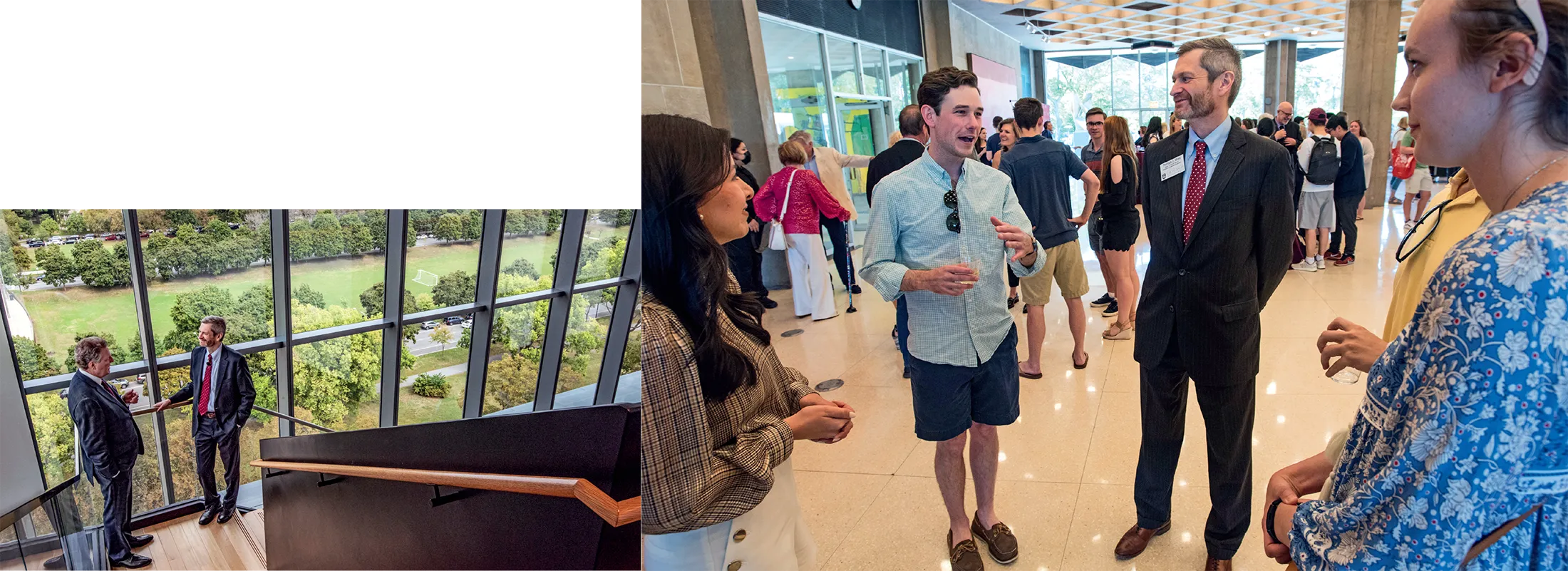
As dean, Miles collaborated with Nussbaum to create new programs at the Law School. When Tom Ginsburg, the Leo Spitz Distinguished Service Professor of International Law, conceived of a program dedicated to bringing faculty and students together for respectful small-group dialogues on diverse ideas and disparate viewpoints, Nussbaum, with Miles’ encouragement, generously endowed this program with proceeds from her receipt of the 2018 Berggruen Prize for Philosophy and Culture. During Miles’ deanship, Nussbaum also created a new course on animal ethics and law and established the Rachel Nussbaum Animal Law Fellowship, for students interested in that area of the law.
Over the past decade, leaders at some law schools made a regular practice of promulgating official statements on issues of the day. Miles sought to avoid this, instead adhering to the University of Chicago’s policy, developed in the seminal 1967 Kalven Report, that disfavors making official statements in order to foster an environment of free expression for students and faculty. Regarding Miles’s leadership in upholding UChicago’s values of free inquiry and expression, Ginsburg, the faculty director of the University of Chicago Forum for Free Inquiry and Expression, noted:
“Tom has been absolutely committed to our values as a law school and one of the most important things he has been solid on has been free expression. He’s navigated several crises where various groups in various constituents have asked him to speak out about various things, but he has never compromised ‘Kalven,’ even as so many university leaders around the country have succumbed to the pressures of speaking out on social and political issues.”
Hubbard, who stepped into his role as deputy dean in July 2023, agreed: “Part of Tom’s steadiness as a leader stems from his ability to remain firm on our principles. He has made some very hard calls so that students and faculty can have the academic freedom to take the positions they want, even if they are controversial. And hindsight continues to show us that many of his hard calls were indeed the right calls.”
For Miles, making sure these values are imparted onto students has been an equally important goal.
In recent years, he has increased efforts to communicate the importance of these values to students at all stages of their Law School experience, from the recruitment and admissions stage (where entering students are given copies of The Chicago Canon on Free Inquiry and Expression), to orientation (where students engage in a free expression workshop), all the way up to graduation, where last year Judge Diane P. Wood delivered a convocation speech on “The Art of Agreeable Disagreement.”
At the heart of these efforts is Miles’s unshakable commitment to the Law School being a place for ideas to freely thrive.
A Supportive Dean, Inspired by Faculty Excellence
One of Miles’s key priorities as dean has been to nurture the engaging intellectual environment of the Law School. In the last ten years, he made more than twelve faculty appointments, deployed six new named professorships, including the first named clinical professorship, and launched a new category of Professor from Practice.
“The Law School is a much stronger place today in large part because of faculty appointments,” said Geoffrey Stone, ’71, the Edward H. Levi Distinguished Service Professor of Law, who, in addition to being one of the Law School’s former deans, had also served as interim before Miles took over. “Tom has been very successful at making appointments; he has probably made more than any dean in recent memory.”
Expanding the faculty has allowed for an influx of ideas on all areas of the law to flourish at the Law School. It allowed teaching responsibilities to be more competitive with other law schools and eliminated a source of faculty turnover.
“The teaching load difference has made a significant impact on the time available for faculty to engage with scholarship, engage with one another, and even engage with students,” said Stone. “It has been a very positive change and likely one of the factors to help with faculty recruitment and retention, too.”
Even at the height of the pandemic, the Law School hired six new academic faculty.
Anthony Casey, ’02, the Donald M. Ephraim Professor of Law and Economics, was deputy dean during that time. “One thing Tom has been very good at is making sure we’re recruiting some of the best people while at the same time supporting those people in their scholarly work,” he said. “He’s very good at saying, how can I help you? How can the Law School help you get your ideas out into the world?”
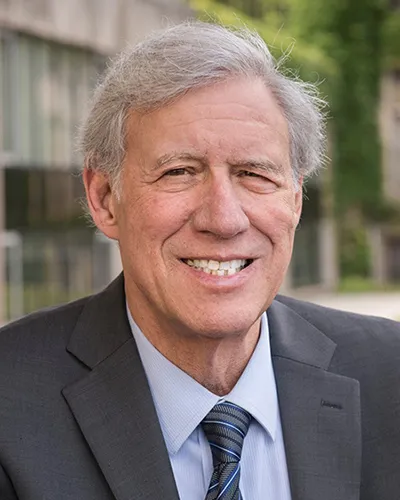
“The Law School is a much stronger place today in large part because of faculty appointments. Tom has been very successful at making appointments; he has probably made more than any dean in recent memory.” Prof. Geoffrey Stone
As the faculty grew—reaching a record-breaking forty academic members at one point, a desired goal for decades—opportunities for faculty to refine ideas and to share them with the wider world also grew.
New academic centers, clinics, and programs also flourished under Miles, creating more opportunities for learning and discourse. In 2016, shortly after Miles became dean, the Law School expanded its flagship law and economics program, launching the Wachtell, Lipton, Rosen & Katz Program in Behavioral Law, Finance, and Economics.
This was followed in 2021 by the establishment of the Constitutional Law Institute, led by Professor William Baude, and in 2023, the Malyi Center for Legal and Institutional Integrity, led by Ginsburg.
Law and economics is an area that holds particular significance for Miles and the Law School. “We are the birthplace of law and economics,” he said, “It is vitally important for us to continue lead in that field, because law and economics fundamentally changed legal education everywhere and it transformed how lawyers understand the law.”
Miles also supported Casey in establishing the Center on Law and Finance, which fosters dialogue between academics, practitioners, and students on issues in law and finance.
The center launched in 2020 just as the pandemic struck, but it was nevertheless greatly successful in hosting nearly a dozen virtual events, bringing together leading scholars and practitioners from around the country. Its programming, which quickly moved to in-person convenings, continues to attract growing audiences.
“The center embodies the idea of scholarship engaged with the world because our goal is to create a connection between research and practice,” said Casey, who is the center’s faculty director.
“He really does care about connecting with students and is not just about making decisions from up top without any student contact.” Prof. William Hubbard
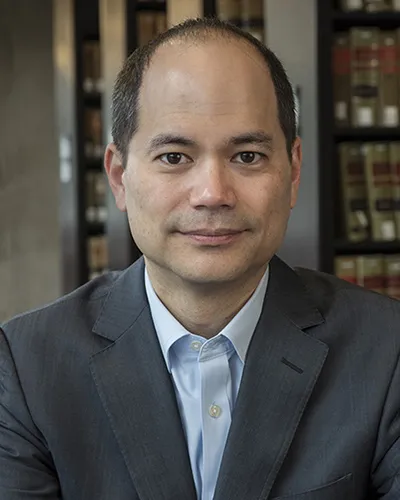
An Advocate for Innovation and Transformative Learning
As the Law School has continued to attract the brightest students, Miles has spearheaded many efforts to improve their experiences and learning opportunities from the very first day. There were two major curricular innovations that completely transformed student learning.
The first was a careful revision of the 1L curriculum, which had not been assessed or updated since the 1970s. The revision retained the Law School’s famed Elements of the Law class and the fundamental common law subjects, but introduced offerings in statutory interpretation, constitutional law, and transactional lawyering. These topics that have grown increasingly important, and hence essential for students to gain exposure to them during their first year. The revision also made 1L class sizes smaller, which further enhanced the student experience.
The second major innovation was the introduction of the JD/MBA accelerated degree program in partnership with Chicago Booth. This innovation built on the continued success of the Doctoroff Business Leadership Program. Not long after, growing strength and excellence in business law inspired students to launch of the Law School’s newest journal, The University of Chicago Business Law Review.
Miles’ deanship has also been a period of significant growth in experiential learning. Three new clinics, including the Jenner & Block Supreme Court and Appellate Litigation Clinic, led by Professor David Strauss, were added.
With a curriculum that combines Chicago’s famous rigor and forward-thinking innovation, students enjoyed superb employment opportunities. The Law School has regularly been at or near the top of lists of law schools with the highest bar passage rates, employment rates, and placements in highly desired jobs. A particular priority was judicial clerkships, and in four of the past five years, the Law School has led the nation in the percentage of new graduates with a federal clerkship as their first job. The number of graduates obtaining clerkships on the US Supreme Court has also risen.
A Steady Hand at the Helm
During the COVID-19 pandemic, places of learning across the country and world were tested in every capacity. The Law School was no different. But for Miles, it was never a question of pausing or shutting down, it was a question of how to continue to do things well, but differently.
“When I came into the deputy dean role in July 2020, I remember thinking, well, we’re just going to be shut down the entire time, but that was definitely not the case,” recalled Casey. “A lot of our peer schools were struggling to stay engaged and connected, but Tom made it his mission to do whatever we could to maintain our culture of engagement with every safety measure in place.”
The task was daunting, but Miles successfully navigated the Law School through the challenges of remote and hybrid learning in a way that did not sacrifice the defining characteristics and values that make UChicago the place that it is. Miles also guided faculty and staff in redesigning classroom infrastructure to accommodate social distance learning in-person.
In the fall of 2020, he made it so that every single student had the option of experiencing at least one class in person. And while other law schools paused or delayed the start of their LLM classes, the Law School went ahead with a reduced-sized cohort. Miles’s commitment to his UChicago values has not gone unnoticed.
Professor Vincent Buccola, ’08, who joined the faculty in 2023, shared that, “I was gratified, like any alumnus would be, to hear from friends that Tom was steering the ship unusually smoothly in very choppy waters. It was only as I began to explore a potential move, though, and so began to look closely at and compare what was going on at peer schools, that I understood fully the importance of Tom’s steady hand and just how rare his kind of composed but determined leadership is in our field. I don’t think it’s even controversial to say that Chicago weathered the pandemic better than any other law school, and Tom is the reason why.”
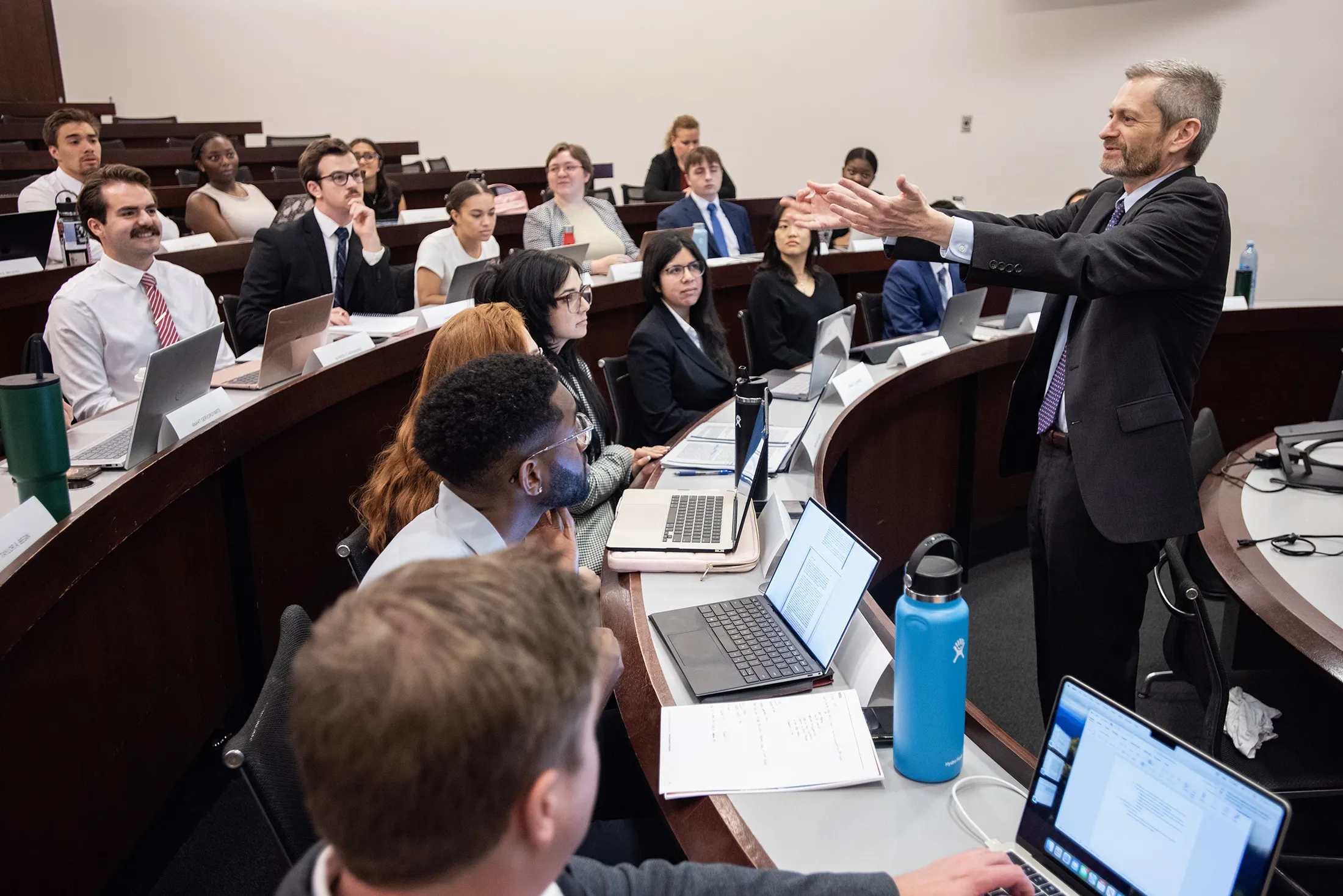
Returning to Scholarship
As the longest serving dean in a half century (since Phil C. Neal, who served as dean from 1963 to 1975), Miles has successfully elevated the Law School’s prominence as an intellectual leader in legal education and scholarship—and the legacy of his leadership will surely leave a resounding echo on the Law School’s next chapter.
Now, he is eager to return to the place where it all began for him, the field of law and economics. He is also very much looking forward to being back in the classroom.
“I missed being able to teach large enrollment classes as dean,” Miles said. “I look forward to returning to scholarship, too. With a faculty filled with path-breaking scholars, I hope that I can keep up.”
